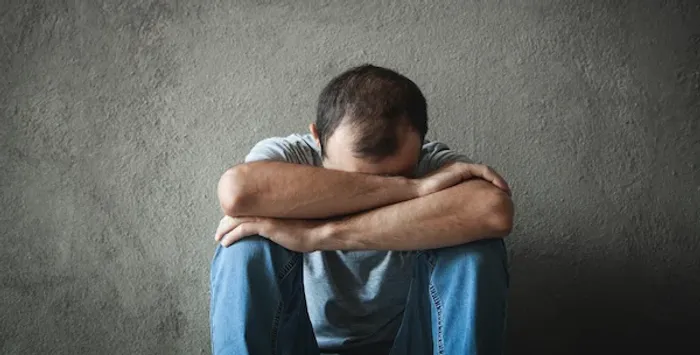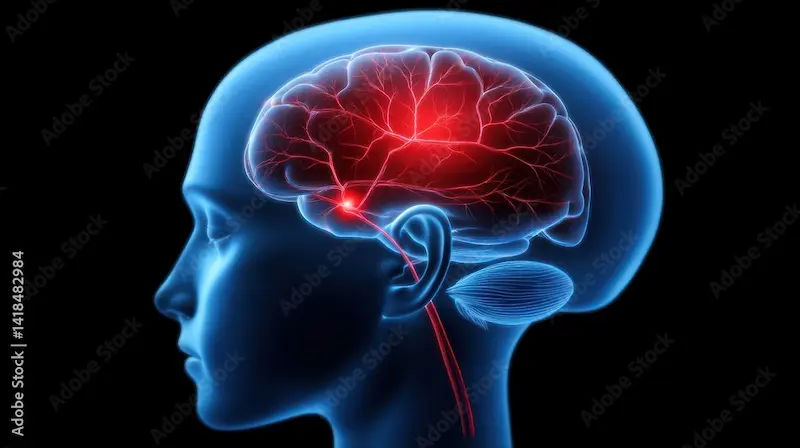Everyday Mental Health: Practical Tips
Discover practical tips for maintaining everyday mental health. Learn simple strategies to boost well-being, manage stress, and stay balanced.


Introduction
In our fast-paced world, we often prioritise physical fitness, career goals, and social commitments, but we tend to neglect the very engine that drives it all: our mental health. Just like we exercise to keep our bodies strong, our minds require consistent care and attention to function at their best. Mental health is not a destination but a dynamic process of internal well-being. It’s about how we think, feel, handle stress, relate to others, and make choices. This comprehensive guide is designed to demystify mental health and provide you with a practical, actionable toolkit to nurture your psychological well-being. We will explore the deep connection between your mind and body, outline foundational habits for resilience, discuss the importance of social connection, and guide you on when and how to seek professional support. Consider this your first step towards making your mental health a non-negotiable priority.
What is Mental Health, Really? Beyond the Absence of Illness
Many people mistakenly believe that mental health simply means the absence of a diagnosed mental illness, like depression or an anxiety disorder. In reality, it's a much broader and more positive concept. The World Health Organization defines it as a state of well-being in which every individual realises their own potential, can cope with the normal stresses of life, can work productively, and is able to make a contribution to their community. It's the foundation for effective functioning and a fulfilling life.
The Mental Health Spectrum: From Thriving to Struggling
Think of mental health as a spectrum. On one end, we have "thriving," where you feel resilient, engaged, and generally positive. In the middle, many of us experience "languishing," a sense of stagnation or emptiness. On the other end, "struggling" involves significant emotional pain and difficulty coping. Everyone moves along this spectrum throughout their life due to various stressors, genetics, and circumstances. The goal of mental health care is not to be permanently at the "thriving" end but to build the skills to navigate the entire spectrum with grace and resilience.
The Mind-Body Connection: How Mental Health Affects Physical Health
The divide between mind and body is an artificial one. Chronic stress or untreated mental health conditions can manifest physically. For instance, anxiety can lead to digestive issues, headaches, and a weakened immune system. Depression is often linked to fatigue, changes in appetite, and increased inflammation. Conversely, chronic physical illnesses can take a significant toll on your mental health. This bidirectional relationship underscores why caring for your mind is as critical as caring for your body. If you experience persistent physical symptoms like unexplained aches or digestive trouble alongside low mood, it may be helpful to consult a doctor online with Apollo24|7 to explore the connection.
Consult a Psychologist for the best advice
Building Your Mental Health Toolkit: Foundational Habits
Building robust mental health starts with establishing daily habits that create a solid foundation of well-being. These are not quick fixes but sustainable practices that compound over time.
Move Your Body, Boost Your Mind: The Power of Physical Activity
Exercise is a powerful medicine for the mind. When you engage in physical activity, your brain releases endorphins, natural mood lifters that can reduce the perception of pain and trigger a positive feeling. Regular exercise is proven to alleviate symptoms of depression and anxiety, improve sleep, and reduce stress. You don’t need to run a marathon; a daily 30-minute brisk walk, a dance session in your living room, or a yoga class can make a profound difference. The key is to find an activity you enjoy, making it easier to stick with.
Fuel for the Mind: Nutrition's Role in Mental Well-being
The gut is often called the "second brain" for a reason. There's a direct communication line between your gut and your brain, known as the gut-brain axis. A diet rich in processed foods, sugar, and unhealthy fats can exacerbate anxiety and low mood. Conversely, a diet focused on whole foods, fruits, vegetables, lean proteins, and healthy fats (like those in nuts and avocados) provides essential nutrients for brain function. Omega-3 fatty acids, found in fish, are particularly important for emotional health.
The Restorative Power of Sleep
Sleep is non-negotiable for mental health. During sleep, your brain processes emotions, consolidates memories, and clears out toxins. Chronic sleep deprivation leaves you vulnerable to irritability, poor concentration, and heightened stress reactivity. Aim for 7-9 hours of quality sleep per night. Establish a relaxing bedtime routine: power down screens an hour before bed, keep your room cool and dark, and avoid caffeine in the evening.
Mindfulness and Meditation for a Busy Mind
Mindfulness is the practice of being fully present in the current moment without judgment. It’s a powerful antidote to the anxiety that comes from ruminating on the past or worrying about the future. Meditation is a formal practice to cultivate mindfulness. Studies show that even 10 minutes of daily meditation can shrink the brain's amygdala (the fear center) and strengthen the prefrontal cortex (responsible for rational thought), leading to better stress management. Apps like Headspace or Calm can be excellent guides for beginners.
Nurturing Your Social and Emotional World
Our relationships and internal dialogue play a crucial role in our psychological well-being. Cultivating a healthy emotional life is a key part of self-care.
The Art of Connection: Building a Support System
Humans are social creatures. Strong, positive relationships are a buffer against life's challenges. Make time to nurture connections with friends and family who uplift and support you. Don’t underestimate the power of a simple conversation. Feeling lonely or isolated can be as detrimental to health as smoking 15 cigarettes a day. If your social circle is small, consider joining a club, volunteering, or participating in group activities around your interests.
Setting Boundaries for Peace of Mind
Boundaries are the limits you set to protect your energy and well-being. This can mean learning to say "no" to extra responsibilities when you're overwhelmed, limiting time with people who drain you, or setting rules around your availability for work emails. Healthy boundaries are not selfish; they are essential for preventing burnout and maintaining respectful relationships.
Practicing Self-Compassion and Challenging Negative Self-Talk
How you talk to yourself matters. Many of us have a harsh inner critic that magnifies our flaws and minimises our successes. Self-compassion involves treating yourself with the same kindness you would offer a friend. When you make a mistake, instead of thinking, "I'm a failure," try a more compassionate reframe: "I'm human, and I'm learning." Actively challenging this negative self-talk is a fundamental skill for building resilience and a positive self-image.
Recognising When You Need More Support
While self-help strategies are vital, there are times when professional help is necessary. Recognising this is a sign of strength, not weakness.
Common Signs of Mental Health Strain
It's time to consider seeking support when your symptoms:
Persist for more than two weeks.
Are intense and overwhelming.
Interfere with your daily life, work, relationships, or ability to function.
Lead to thoughts of harming yourself or others.
Common signs include prolonged sadness or hopelessness, excessive worry, extreme mood swings, social withdrawal, and significant changes in eating or sleeping patterns.
Breaking the Stigma: It's Okay to Ask for Help
Despite progress, stigma around mental health persists. Remember that seeking therapy is no different than seeing a doctor for a physical ailment. You are taking proactive steps to care for your health. Therapists and counsellors are trained professionals who provide evidence-based tools and a confidential space to work through challenges.
Types of Professional Mental Health Support Available
There are various forms of support:
Psychotherapy (Talk Therapy): Includes modalities like Cognitive Behavioural Therapy (CBT), which is highly effective for anxiety and depression by changing negative thought patterns.
Medication: Psychiatrists can prescribe medications that can help manage symptoms, often used in conjunction with therapy.
Support Groups: Connecting with others facing similar challenges can reduce feelings of isolation.
If your condition does not improve after trying self-help methods, or if your symptoms are severe, booking a consultation with a mental health professional through a platform like Apollo24|7 can be a crucial first step toward healing.
Creating Your Sustainable Self-Care Plan
Knowledge is only powerful when applied. Take a moment to create a simple, sustainable plan. Choose one or two foundational habits from this guide to focus on for the next month. Maybe it's committing to a 15-minute walk three times a week and practicing 5 minutes of mindfulness each morning. Write it down. Start small, be consistent, and be kind to yourself on the journey. Your mental health is worth the investment.
Conclusion
Taking care of your mental health is the most important investment you can make in your overall quality of life. It's a continuous journey of self-awareness and intentional action, not a one-time achievement. By integrating the practical strategies outlined in this guide, from moving your body and nourishing your brain to fostering connection and knowing when to seek support, you empower yourself to navigate life's challenges with greater resilience and grace. Remember, small, consistent steps lead to significant, lasting change. You don't have to do it all at once. Start today by choosing one small action that makes you feel good. Your well-being is worth it.
Consult a Psychologist for the best advice
Consult a Psychologist for the best advice

Mr. Aman Kochhar
Psychologist
2 Years • MA - Psychology, Post Graduate Diploma In Guidance and Counselling
New Delhi
Well-mind Counselling, New Delhi

Dr. Rituparna Sannamoth
Clinical Psychologist
5 Years • BSC Psychology, MA Psychology, M. Phil Psychology
Barrackpore
RSV Healthcare, Barrackpore

Dr. Anindya Mondal
Psychiatrist
4 Years • MBBS, MD Psychiatry
Barasat
Diab-Eat-Ease, Barasat

Ms. Moumita Ganguly
Psychologist
13 Years • B.ED(Special) Visual Impairment , PG.Diploma in Rehabilitation psychology
Kolkata
M’s Clinic, Kolkata
(150+ Patients)

Miss. Vaishnavi Sankeshwar
Psychologist
5 Years • Msc Clinical Psychology
Bengaluru
Apollo Clinic, JP nagar, Bengaluru
More articles from General Medical Consultation
Frequently Asked Questions
1. What's the difference between normal sadness and clinical depression?
While sadness is a natural, temporary emotion often triggered by a specific event, clinical depression is a prolonged mental health condition. Depression involves persistent feelings of hopelessness, loss of interest in activities, and physical symptoms like changes in sleep or appetite that last for at least two weeks and significantly impair daily functioning.
2. I don't have time for elaborate self-care routines. What can I do?
Self-care doesn't have to be time-consuming. It's about micro-habits. Try a 60-second breathing exercise, a 5-minute walk around the block, listening to your favorite song, or drinking a glass of water. The key is consistency, not duration.
3. How can I help a friend or family member who is struggling with their mental health?
The most important thing is to listen without judgment. Let them know you care and are there for them. Avoid giving unsolicited advice. Gently encourage them to seek professional help and offer practical support, like helping them research therapists or accompanying them to an appointment.
4. Are online therapy platforms effective?
Yes, research shows that online therapy can be as effective as in-person therapy for many common conditions like anxiety and depression. It offers greater accessibility and convenience, making it a valuable option for many people.
5. How do I find a therapist that is right for me?
Look for a licensed professional whose expertise aligns with your needs (e.g., anxiety, trauma). Many platforms, including Apollo24|7, allow you to filter therapists by specialty, read profiles, and consider factors like gender preference to find a good fit.




